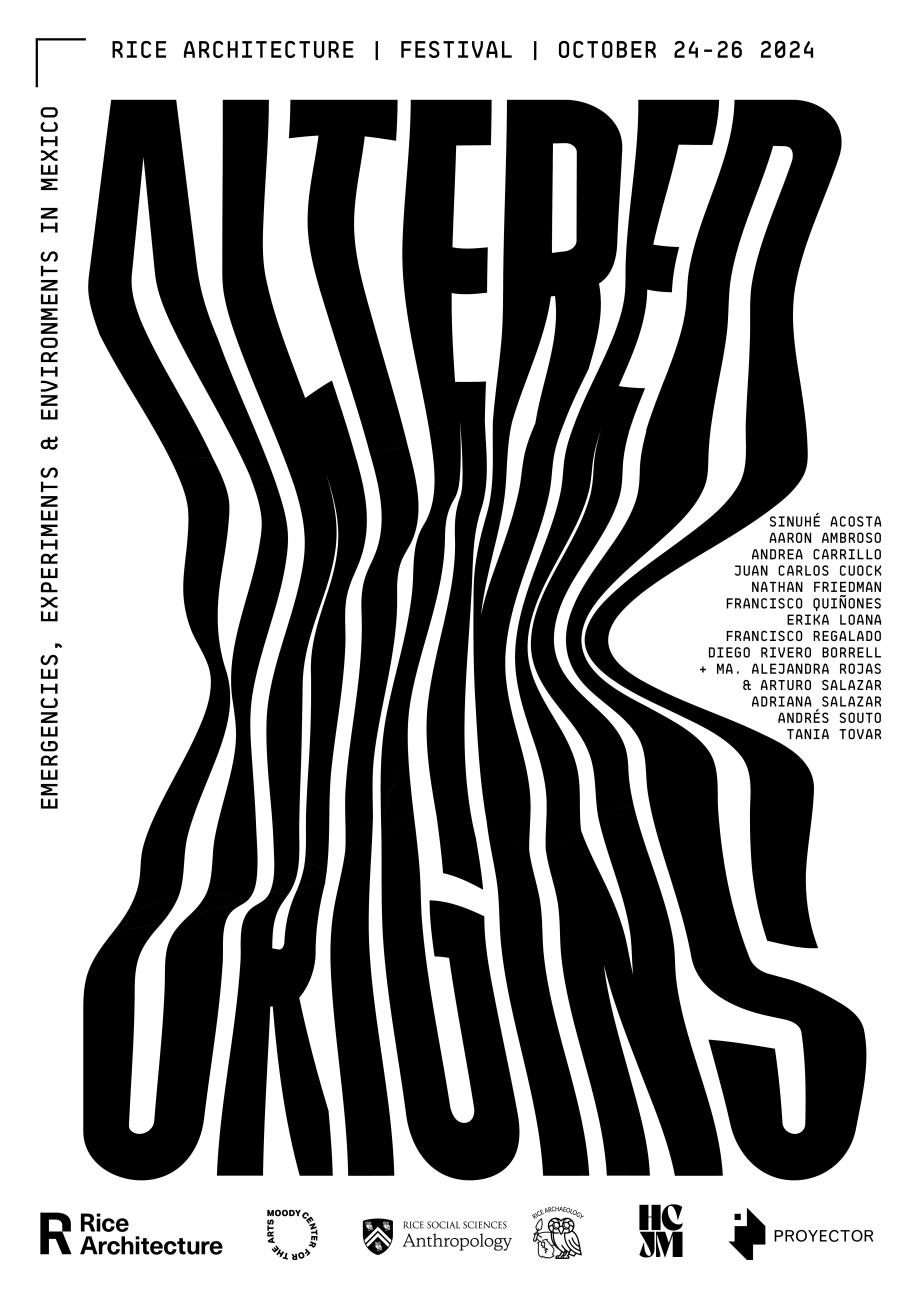PERFORMANCE PROGRAM
1:00 pm–4:00 pm
Island of Simulation: A Tropical Playground
Andrea Carrillo, Independent Artist
Island of Simulation: A Tropical Playground is a lecture-performance that explores the technological, ethical, and aesthetic implications embedded in the simulation of tropical ecosystems. The narrative is set against the Climatron, a geodesic dome greenhouse built in the 1960s in St. Louis, Missouri. The work draws upon the complex issues around the production of landscape, revealing logics of colonialism and exoticism, the relationship between power and spectacle, and how Western knowledge has been legitimized through science, technology and aesthetic means. Through a series of monologues, the artist brings forward the story of three actors: the dome, the plant, and the fake rock. These characters weave narratives around the ethnocentric obsessions of reproducing miniature foreign worlds in enclosed spaces, posing larger questions around our complex relationship to nature as “Other.” Through desire these characters attempt to seduce the audience as a way to create tension between the desire of the object and the absurdity behind it.
Cronoboros
Diego Rivero Borrell, TANAT
María Alejandra Rojas and Arturo Salazar
Cronoboros is a film projection and live sound performance of the award-winning El Eco Pavilion competition in Mexico City. The piece reflects on the concept of transformation (ouroboros) through time (cronos). By covering the patio of the Museo Experimental El Eco in Mexico City with a surface of stones, gravel, and water, this site-specific piece transforms an iconic space with natural elements that are inevitably intervened by visitors. The film presents the activation in December 2020, by artist Galia Eibenschutz performed on the Pavilion, raising questions about the natural landscape and its continuous transformations by the human body and its spatial demands.
PRACTICE CONVERSATION
Performing Landscape
5:00 pm–7:00 pm
Andrea Carrillo, Independent Artist
Diego Rivero Borrell, TANAT
María Alejandra Rojas and Arturo Salazar
Response: Tania Tovar and Juan Carlos Cuock, Proyector
This conversation explores how artistic performance can push the boundaries of architecture, challenging established norms and redefining the discipline by offering a unique lens through which to analyze how language reproduces and conditions space. Performance itself can become an architectural creation, blurring the lines between architecture and other forms of creative expression. In doing so, it expands the very concept of architecture and what it can be, inviting a more inclusive definition of architectural work.
ABOUT THE EVENT
To think about origins is to think about sources, materials, and places of provenance: natural or artificial, physical or virtual. The question of origins, however, is bound to the question of their alteration. Only when something changes, are we left asking where it came from. Transformations, in all scales and temporalities, have always been present in architecture: from the slow degradation of ancient ruins to the immediate repetitions of digital images. Architecture and its objects are not only inevitably bound to face alterations, but architectural practices have also incorporated them at the core of their methodologies, mixing old traditional processes and new technological tools in various gradients and conditions. Mass and digital production and dissemination methods are making for fast-changing conditions in architecture, taking a particular interest in replicating and reproducing objects, processes, and experiences. As technical and technological tools evolve, so do the forces that objects undergo, changing media, shape, location, temporality, and meaning.
Altered Origins invites contemporary spatial practitioners in Mexico who work at the intersection of architecture and the arts to share their insights into the physical and conceptual transformations, media, and disciplinary intersections shaping contemporary architectural discourse and practice through an open exchange of methodologies and experiments.
The three-day festival, featuring a program of open workshops, conversations, and live performances, will be held from 24 to 26 October at multiple venues in and around Rice University, including the Rice School of Architecture, the Archaeology Lab of the Rice University Anthropology Department, the Moody Center for the Arts, and the Houston Climate Justice Museum.
PARTICIPANTS:
Sinuhé Acosta, Random Studio
Aaron Ambroso, Houston Climate Justice Museum
Andrea Carrillo Iglesias, Independent Artist
Nathan Friedman and Francisco Quiñones, Departamento del Distrito
Erika Loana, Materia Prima
Francisco Regalado, Laboratorio de Arte, Arquitectura y Arqueología
Diego Rivero Borrell, TANAT + María Alejandra Rojas and Arturo Salazar
Adriana Salazar, Independent Artist
Andrés Souto, mUcHo estudio/taller
Tania Tovar and Juan Carlos Cuock, Proyector


